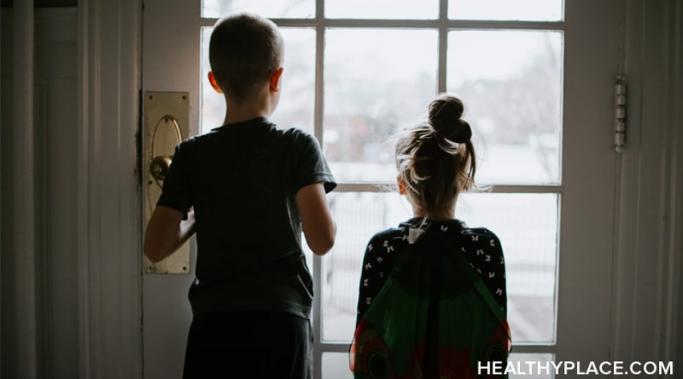I've been learning in therapy that so many of the things I've accepted as "fact" all my life are actually subjective beliefs passed down from my family. I loved the challenge my therapist set me this week of deconstructing my family's beliefs on various topics, including mental health.
Mental Illness and Marriage
Family expectations can be draining for a lot of reasons. Depending on what kind of family you come from, there’s a whole bunch of different unwritten rules about the types of lives we “should” live. My brother’s mental illness challenged our family expectations in a major way, and when I reflect on it I see that he changed our family culture for the better.
Defining your role in mental health support can be tricky in a family situation, especially if you have some sort of professional healthcare background. I had recently qualified as an occupational therapist, and when my brother was diagnosed with chronic anxiety and depression, I put a lot of pressure on myself to be more than just a sister because of that. I wish I could take that back.
I feel a growing responsibility to normalize mental health discussions outside of dedicated platforms, such as this blog. For people like my brother who live with chronic mental illness to exist stigma-free, we need to demystify the topic of mental illness in the wider community.
Supporting someone in denial about their mental health can be a very delicate situation. A friend of mine is living this reality at present -- her partner is exhibiting clear symptoms of mental illness but is not able to have a conversation about it just yet. Supporting my friend has reminded me of when my brother was also in denial about his mental health before he received a diagnosis. Here are some of the things I learned through that experience.
When we're supporting someone with mental illness, I think it's very important to constantly examine how healthy our relationship with that person is. As my brother lives with chronic mental illness, I have first-hand experience of how unhealthy behaviors can easily creep into relationships, even with the best of intentions.
I have been down a serious Google rabbit hole this past week on the subject of mental illness masking other conditions. The reason for this is personal -- my brother is currently undergoing diagnostic testing for autism. The more I think about this, the more it makes sense that mental illness could inhibit timely diagnosis of other issues.
Respecting the boundaries of mentally ill loved ones should be a given, but sometimes we push these boundaries -- I've certainly been guilty of this in the past. Even when this is done out of good intent, I don't believe it is a fair thing to do. I have learned a lot on this topic through my experience with my brother, who has chronic mental health problems. Here's a bit of a reflection on those learnings.
Like many, I tuned into the Meghan and Harry interview last week, and I was particularly interested in Meghan's account of her mental illness being ignored by the royal family. Regardless of your thoughts on this particular couple, this is, sadly, a common issue in many families. Mental illness is ignored in families regularly, perhaps because we simply don't know how else to cope with it. I think we need to do better.
I am experiencing heightened anxiety at the moment, as I am waiting for important medical results. I usually avoid sharing my anxiety with my family, but this time I decided to be more open. Telling my brother, who has chronic mental health issues, about what I am going through was surprisingly helpful.









